Preventative medicine for treating parasites can be really confusing, there are so many different treatments for each individual parasite sometimes it’s hard to know what to do for the best. I am going to talk about which parasites we should be treating and the different options available .
FLEAS
Fleas are known as an ecto parasite meaning they live on the outside of the body and there are a few different species, such as dog fleas, cat fleas and rabbit fleas. They feed on the blood of your pet and a single female can lay up to 50 eggs per day.
Flea bites can make your dog uncomfortable and in some cases animals can be hypersensitive and have allergic reactions causing horrific itching and fur loss, fleas also carry tapeworms. Young animals that suffer flea infestations can develop anemia due to the amount of their blood being consumed by the fleas.
If your pet isn’t being treated for fleas they can infest your home and will start to bite you also, in this case you would also have to treat your entire house .
The easiest way to prevent any of this happening is to use a spot on flea treatment. The only reliable ones are those purchased from a veterinary surgery, these drugs are safe and guaranteed to work, they have been extensively tested to ensure safety and efficacy.
These treatments are usually a pipette of liquid applied once monthly on the back of the neck all year round.
TICKS
These are small arachnids part of the same group as mites, they are also ecto parasites living by feeding on the blood of mammals. Your dog is more likely to pick up a tick when walking in grasslands and heath areas, but can also be found in gardens if you live near wildlife.
Ticks are big enough to spot, they become larger as they fill their bodies with blood, quick removal is key as they can spread diseases such as lymes disease and babesiosis. You should never pull a tick off as you can leave the mouth parts still in your dog which can lead to infections. You can either see your vet or you can purchase a tick remover.
Ticks are easily prevented by using a spot on treatment once a month all year round.
TAPEWORM AND ROUNDWORM
These horrible things are endoparasites which means they live inside the body usually in the intestines. Dogs can pick up roundworms from the environment, other dogs faeces, eating mice or other small animals and commonly puppies are born with roundworms as these parasites can cross the placenta from the mother if she has not been treated.
Many dogs do not show symptoms of roundworms, however if a dog has a large roundworm infection they may have diarrhoea, vomiting, weight loss, pot bellied appearance and in some cases a cough if the worm has moved into the lungs.
Treating roundworms is easy, a tablet dosed to your dogs weight is all that is needed. In puppies this should be done at 2,4,6 and 8 weeks of age and then monthly until 1 year of age, then once in adults twice yearly treatments. Tapeworm is a little more sinister, they also live in the intestines of the dog and are usually picked up from ingesting an infected flea, birds or rodents . These worms can be dangerous to people especially young children so a worming regime should be adhered to.
Same as roundworm this is treated with a tablet at the same time intervals in puppies 2,4,6 and 8 weeks and once monthly until 1 year and then twice yearly. Your dog would also show the same symptoms as I mentioned with roundworms, but may also scoot their bottoms on the floor.
LUNGWORM
Lungworm is a worm that lives in the heart and pulmonary artery. Slugs and snails carry lung worm larvae and this is how dogs become infected, some slugs and snails are tiny and dogs can accidentally swallow them while rummaging through undergrowth, eating grass, drinking from puddles playing with toys outside.
Lungworm if left untreated is fatal, the signs and symptoms are very vague and usually once spotted the disease has become too advanced to treat.
The only way to ensure your dog is safe from Lungworm is to treat monthly. This is done with a spot on treatment, there are only two licensed to treat this, they are advocate and prinovox . DO NOT be tempted to buy supermarket or online treatments or you will be putting your dog at risk.

I am always browsing online for tips that can facilitate me. Thx!